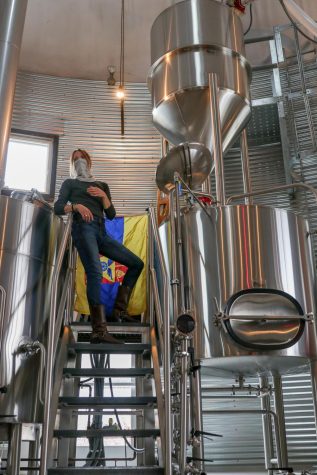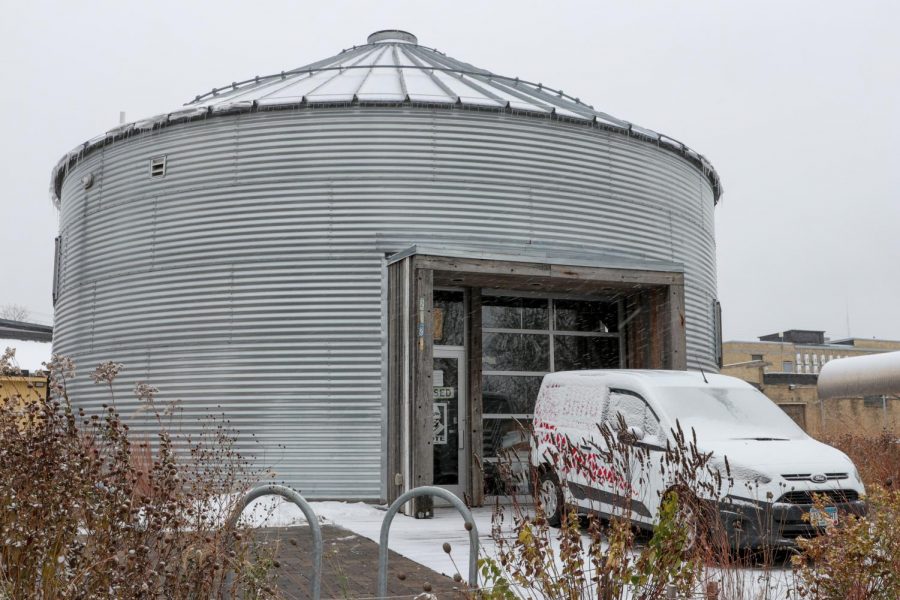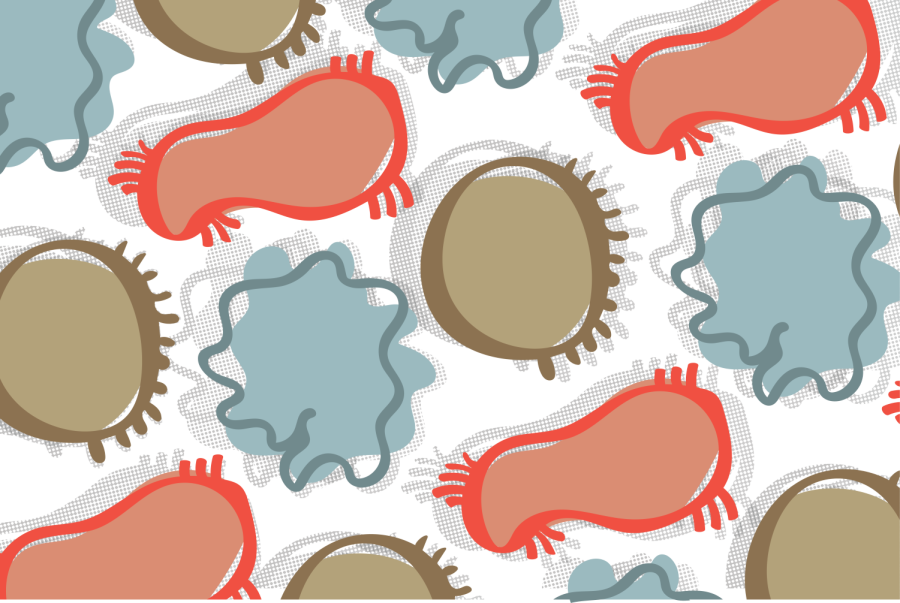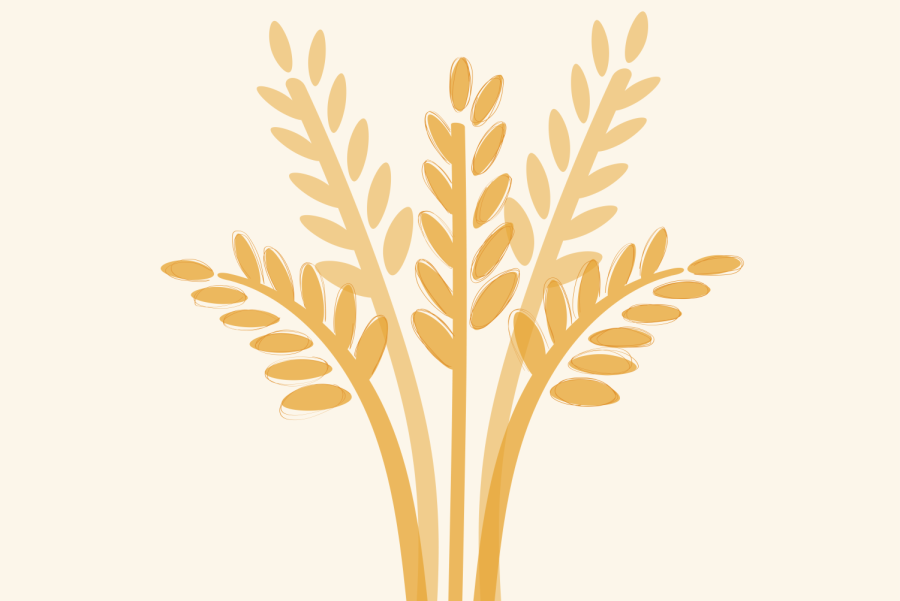Hidden in the industrial sector of St. Paul, a grain bin-shaped building glints in the sun. Inside, a tank fermenting yeast bubbles and sacks of organic malted grain sit on the floor. When operating, Bang Brewing can make about 300 gallons of beer per batch.
Since officially launching in May, the St. Paul brewery is partnering with the University of Minnesota to create the Organic Brewers Alliance, a database that will map out growers, brewers and maltsters around the nation and help foster connections among them. Once finished, the database will map where producers and breweries are located and enable people to search by specific ingredient or location, said Sandy Boss Febbo, co-owner of Bang Brewing. Companies will also be able to find contact information to get in touch with one another.
When Boss Febbo and her husband, Jay, opened Bang Brewing in 2013, she said their mission was to craft their beers and ales using only organic ingredients. One of the challenges they encountered right away was how to source them.
Boss Febbo said there are few farms growing organic grains needed to brew beer, like barley and rye. For the organic farms that do exist, finding them is another hassle.
“We have fewer options, because there are fewer farms that are working with organic practices. Within those, they’re growing fewer varieties [of grains],” she said. “It’s a challenge that we embrace.”
Giving farmers this tool, the Organic Brewers Alliance will help promote sustainable and organic agriculture, Boss Febbo said. Through this, farmers will also be able to find and expand their market, which will in turn give brewers like herself more options.
“Rebuilding regional networks, I do feel at times like we’re reinventing the wheel,” she said. “We need to show that there’s more demand out there and coming together in this network and making this tool available to people is going to enable that to happen.”
Emmery Hartwig, a fourth-year plant science major, has been working on the project since its launch. Hartwig and another undergraduate student, Marena Ekblad, have spent their time calling nearly every organic brewer, farmer and producer in the country and recording a master list of maltsters, millers, brewers and growers.

Hartwig said they have cataloged over 60 breweries and hop farms, 100 grain farms and 14 maltsters so far. Often when they call a brewer, the brewer will refer Hartwig to another organic brewer, and so on. Because of this, Hartwig said it is apparent there is a need for a resource like the Organic Brewers Alliance.
“One of the purposes is just to help people spread information, share information, establish cooperative purchasing for brewers, so that they can access larger markets that they normally wouldn’t be able to access,” Hartwig said. “And then also just to garner support for sustainable and regenerative agriculture because with climate change, it’s never been more important.”
The project is expected to be completed by the end of 2020, they said, and there are plans to make similar projects cataloging organic cider and wine distilleries around the U.S. in the future.
Noreen Thomas, an organic farmer who owns Doubting Thomas Farms in Moorhead, Minnesota, has supplied Bang Brewing with malted and flaked barley, oats and wheat for almost two years. Thomas said the Organic Brewers Alliance would be great for her business.
Already organic producers face challenges with getting certified as organic entities. Organic farms have to be inspected by a third party and cannot use any herbicides or pesticides, she said.
Thomas said the Boss Febbos are already ahead of the curve. Not only will the Alliance promote organic farming, which has environmental and health benefits, it will also help consumers know which local farms they are supporting. With more small breweries opening in recent years and an interest in uniquely crafted flavors, their work is especially relevant, Thomas said.
Competing against larger companies, the Organic Brewers Alliance tool will level the playing field by helping smaller organic farms get put on the map, she said.
“The people interested in organics are very committed. They’ve had to go against the grain, literally,” Thomas said. “The work is a lot harder and this will help alleviate [those challenges].”
Correction: A previous version of this story misstated the type of equipment used in Bang Brewing Company and incorrectly described when the project began. Due to an editor’s addition, Boss Febbos was misspelled. The story has since been updated and corrected.






















